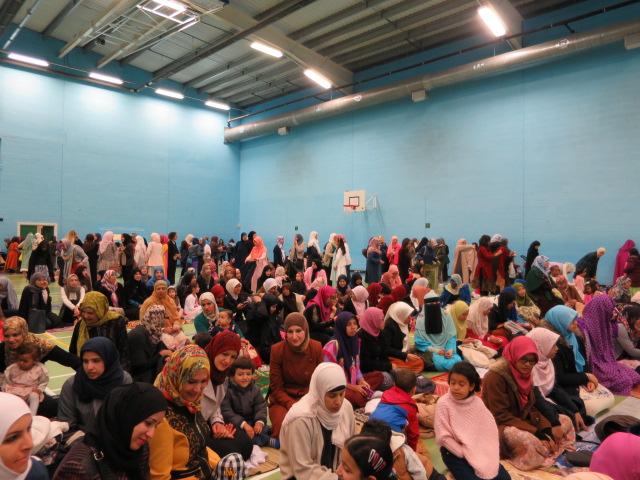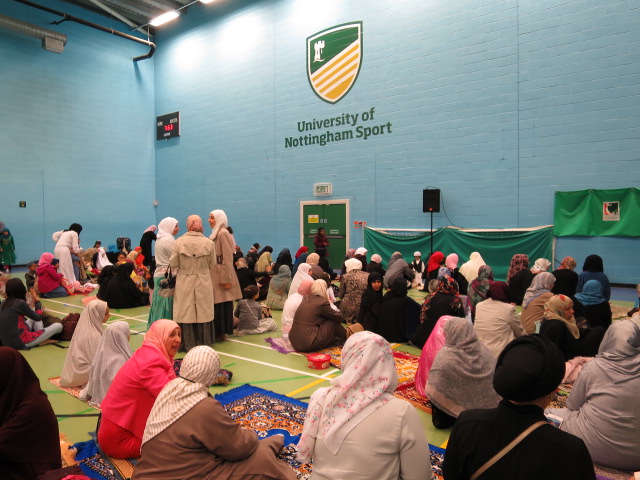September 25, 2015, by International students
Eid al-Adha in Nottingham
Eid al-adha is the one of two most important religious holidays celebrated by Muslims worldwide each year. It is distinct from Eid Al-Fitr. While Eid Al-Fitr marks the end of Ramadan when Muslims break their month-long fast, this festival marks the end of Hajj or pilgrimage to Mecca. This festival involves animal sacrifice as a symbol and honors the willingness of Abraham (Ibrahim) to sacrifice his son, Ismail, as an act of submission to God’s command, and God’s mercy in putting a lamb in his son place at the last moment.
Similar with Eid al-Fitr, the date of Eid al-Adha is in accordance with the Islamic lunar calendar. It falls on the tenth day of Dhu al-Hijjah, the twelfth month of Islamic calendar. While Eid al-Adha is always on the same day of the Islamic calendar, the date on the Gregorian calendar varies from year to year since the Islamic calendar is a lunar calendar and the Gregorian calendar is a solar calendar. This year, 10th Dhu al-Hijjah is 24 September 2015 in Gregorian calendar.
In Indonesia, Eid al-Adha is a public holiday that involves animal sacrifice, prayers and family gatherings. The day begins with morning prayers, followed by visits to family and friends and the exchange of food and gifts. Although in Britain it is not a public holiday, Muslim students can still celebrate it. In the middle of the hustle bustle of Welcome Week, on Thursday 24 September 2015, Islamic Society arranged Eid prayer in Jubilee Campus Sport Centre at 8am. Since the Hopper bus operates at 8am during term time, they also arranged a shuttle service from Portland building to Jubilee campus. Amin from Sudan led the prayer. The prayer then was followed with a sermon from Yusuf Chambers. There were around 25,000 people who join the prayer. They were Muslims from Pakistan, India, Bangladesh, Indonesia, Malaysia, Brunei Darussalam, Middle East and North Africa countries, and many others. I reckon that there is a unique tradition during Eid prayer in here where children offer some sweets to others.
While in Indonesia the animal slaughter takes place after the prayer in a public field, in Britain, anyone wishing to sacrifice a sheep has to make arrangements for it to be slaughtered and the law in the United Kingdom only allows this in an official slaughterhouse. The meat from the sacrificed animal is preferred to be divided into three parts. The family retains one third of the share; another third is given to relatives, friends and neighbours; and the remaining third is given to the poor and needy.

Meredita Susanty, an international student from Indonesia studying MSc Management and Information Technology at The University of Nottingham.
Read more about being a Muslim in Nottingham
No comments yet, fill out a comment to be the first


 English
English
Leave a Reply